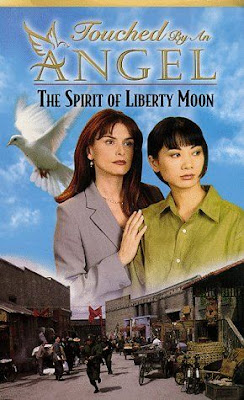Obviously, people deeply distrust social media tech companies, if horror movie makers believe the public will accept a company that somewhat resembles Meta kidnapping innocent people to produce a life-and-death dark web survival game. If you are wondering, the evil corporate entity sounds more Meta than X, because of all the references to their AI division. Regardless, their behavior is unambiguously criminal, but apparently, they have been getting away with it for quite a while in Cara Claymore & Jacki Payne’s Werewolf Game, which releases today on VOD.
The “Judge” will explain the rules to the distressed abductees, but viewers who have played the parlor game “Mafia,” also known as “Werewolf,” already know how it works. Two lucky “contestants” are designated werewolves. The rest are villagers. During the night, the two wolves hunt the villagers. By day, the sheep try to identify their hunters, before each fatal elimination vote, resulting in a bullet to the back of the head.
Frankly, nobody (including myself) would be particularly interested in Werewolf Game were it not one of the final films starring the late, great horror legend Tony Todd. It really is a nasty, brutish piece of work. Yet, the violence is eclipsed by the impossibly bad decision-making. Perversely, the villagers constantly vote to eliminate the least dangerous players, including the homeless basket case, who could hardly get out of bed. Very little makes sense, including placing Raymond, a former IT guy with the tech company, into the game.
Of course, Todd has the perfect, malevolent voice for the Judge, but it is rather a shame he must mask up for most of the film. Arguably, the best work comes from Robert Picardo (Star Trek’s holographic doctor), who plays Bill, a former police detective, who at least tries to apply a little deductive reasoning.












